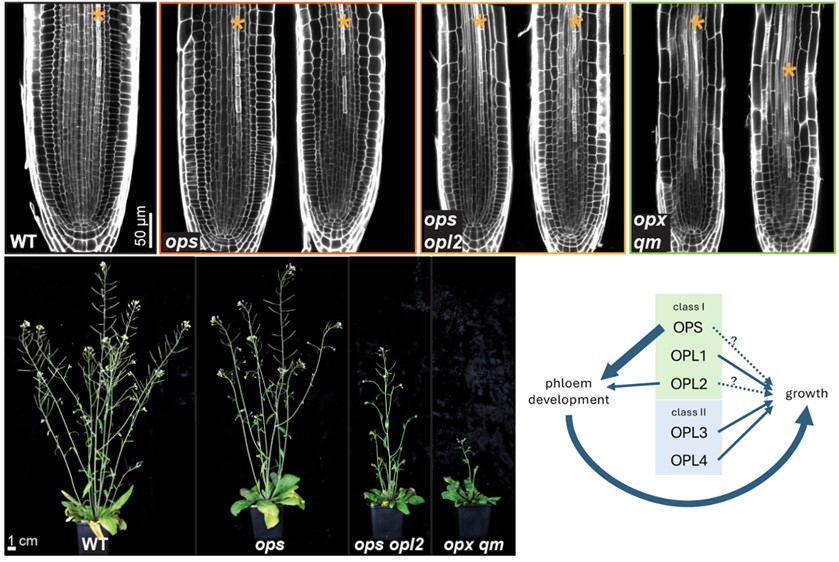Understanding how plants grow: The role of OPS/OPL genes
A recent "Journal of Experimental Botany" paper by the Truernit group (IMPB) sheds light on an Arabidopsis gene family crucial for overall plant growth.

Plant growth is a highly coordinated process involving cell division, elongation, and differentiation into specialised tissues. In the roots, one particularly important tissue is the phloem, which facilitates the transport of nutrients and signalling molecules from the aerial parts of the plant to the roots, thereby supporting growth. Previous research from the Truernit group demonstrated that the protein OCTOPUS (OPS) and its partner OPS-LIKE 2 (OPL2) are essential for proper phloem development, which is, in turn, critical for root growth in the model plant Arabidopsis thaliana.
In this study, the functions of the three remaining OPS/OPL genes in Arabidopsis—OPL1, OPL3, and OPL4—were investigated. The findings indicate that these genes exhibit overlapping functions, partially compensating for one another. While plants lacking only OPS and OPL2 function already displayed impaired root growth, those in which all five genes were disrupted exhibited even more severely stunted roots. However, the extent of phloem defects was not greater than that observed in ops opl2 mutants. This suggests that the complete OPS/OPL gene family plays a fundamental role in directly and indirectly (through regulation of phloem development) regulating root development.
Furthermore, the study revealed that these genes influence not only root growth but also the development of above-ground plant structures. This underscores the broader significance of the phloem and the OPS/OPL gene family in overall plant development. A deeper understanding of these processes may have important implications for optimising plant growth in agricultural and environmental contexts.
Link to the paper in external page "Journal of Experimental Botany".